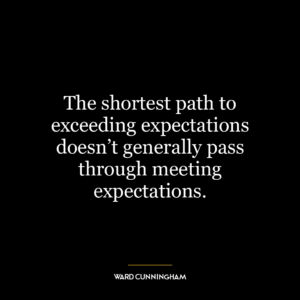What is simplicity? Simplicity is the shortest path to a solution.
Simplicity is the shortest path to a solution” is a profound statement that encapsulates the essence of problem-solving. It suggests that the most straightforward and uncomplicated approach often leads to the most effective solution. This is not to undermine the complexity of certain problems, but rather emphasizes the importance of breaking down complex issues into simpler, manageable parts to find a solution.
This idea is akin to Occam’s Razor, a philosophical principle that the simplest explanation, requiring the fewest assumptions, is often the best. The quote encourages us to avoid unnecessary complications and embrace simplicity as a strategy in problem-solving.
Applying this idea in today’s world, especially in an era overwhelmed by information and technology, can lead to more efficient and effective solutions. For instance, in the tech industry, the most successful apps and software are often those with the simplest, most user-friendly interfaces, despite the complex coding and algorithms operating behind the scenes.
In terms of personal development, this quote can be a guiding principle in decision making and problem-solving. Instead of overthinking and complicating matters, we can strive to simplify our thought processes, decisions, and actions. This could mean breaking down our goals into smaller, achievable tasks, or simplifying our daily routines to reduce stress and increase productivity.
Moreover, embracing simplicity can also mean decluttering our lives – both physically and mentally. This can lead to a clearer mind, better focus, and ultimately, more effective problem-solving. It’s about removing the unnecessary, to make room for what truly matters.
In conclusion, the quote “Simplicity is the shortest path to a solution” is a reminder that simplicity is not about being simplistic or naive, but about being clear, focused, and efficient in our approach to problem-solving and decision-making.










